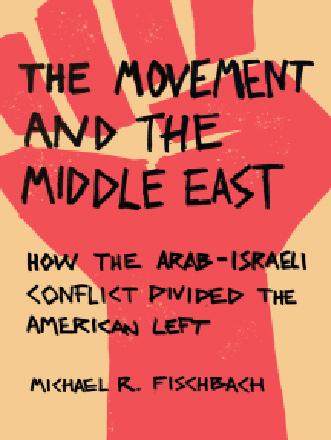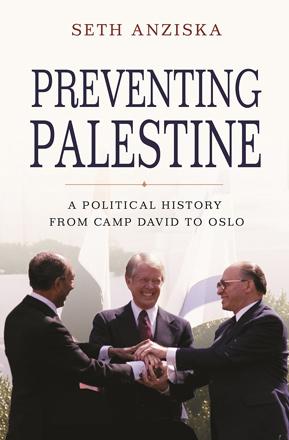You are here
A new dictionary for peace and justice
By Sally Bland - Jul 01,2018 - Last updated at Jul 01,2018

On Palestine
Noam Chomsky and Ilan Pappe
Edited by Frank Barat
US: Haymarket Books, UK: Penguin, 2015
Pp. 215
This book brings together the ideas of two activist intellectuals, Noam Chomsky and Ilan Pappe, both of Jewish heritage, both with extensive contacts among Israelis and Palestinians, and both known for advocating peace and justice in Palestine and internationally.
What makes “On Palestine” especially interesting is that two-thirds of the book consists of dialogues between Chomsky and Pappe, moderated by Frank Barat, human rights activist and coordinator of the Russell Tribune on Palestine. While all three agree on the basics, there are shades of difference, which compels readers to do their own thinking.
Barat sets the stage for new thinking by querying why one becomes an activist. He contends that, initially, everybody is an activist: “We are all born with compassion, generosity, and love for others… We are all moved by injustice and discrimination… But… We live in a society, and an epoch, where we do not have time to think any longer… Our minds, our souls, have been slowly corrupted by materialistic nothingness…” (p. 2)
The conversations between Pappe and Chomsky have three parts: a discussion of the past focusing on the nature of Zionism historically; a discussion of the present focusing on applying the apartheid model to Israel, and the impact of the Boycott, Divestment, Sanctions (BDS) movement; and a conversation on the future discussing the choice between the two-state and one-state solutions. Throughout the dialogues, the importance of history and language —what terms are used — is emphasised by all three discussants.
Pappe critiques what he calls ‘The Dictionary of the Peace Orthodoxy’, connected to the two-state solution, wherein terms like “the peace process”, “the Israel-Palestine conflict” and ‘the need to stop the violence of both sides’ falsely equate the two unequal sides, and rather than promoting a solution, serve as a subterfuge for ongoing Israeli land grabs and aggression against the Palestinians. In contrast, the new movement of solidarity with the Palestinians, associated with the BDS movement, does not limit its scope to the West Bank and Gaza, or to post-1967 events, but relates to the whole of historical Palestine, and frames Israel as an example of settler colonialism and apartheid.
The corollary of these concepts is advocating decolonisation, democratic regime change, and a unitary state. A historical perspective shows that ethnic cleansing is an inherent component of Zionism’s racism which will not end by itself but must be stopped by a stronger force, allowing the return of the refugees. In Pappe’s view, “The new movement has created a new dictionary that if used extensively can help shift public opinion…” (p. 20)
Whereas the world of Western diplomacy and media almost consistently deal with the Palestinian issue as if it began with the Oslo Agreement, Chomsky argues for remembering the past when seeking justice: “To forget about the past means forgetting about the future because the past involves aspirations, hopes, many of them entirely justified, that will be dealt with in the future if you pay attention to them.” (p. 49)
The importance of this view is clear when one thinks of the Palestinians’ right of return.
Both scholars speak/write with precision and compassion. Their dialogue revolves around many very interesting questions, such as whether Israel could have been formed without the Holocaust, Israel’s historical rejection of peace overtures, the similarities and differences between Israel and apartheid South Africa, how to gear solidarity initiatives so they actually help the Palestinians, the impact of the Arab uprisings of 2011-12, the disappearance of liberal Zionism from the Israeli political scene, the legacy of Edward Said and much more.
Chomsky puts special emphasis on the importance of US support having enabled Israel to carry out its policies virtually unimpeded: “Israel understands, like South Africa at the time, that they can be a pariah state, the whole world can be against them, but that does not make a difference as long as the USA backs them… The US solidarity movement has to focus on that.” (p. 83)
Pappe leans towards the one-state solution, noting that it already exists on the ground in some respects, but democratic regime change is needed. Chomsky, however, thinks it is an interesting idea but simply not an option at present. To him there are only two choices: two states or the Greater Israel that the Zionist state is creating by continued land confiscation, fragmentation of the Palestinian space and population, and ongoing ethnic cleansing.
The second part of the book is composed of articles written by the two scholars, several of them in response to the repeated Israeli wars on Gaza and ending with Chomsky’s eloquent address to the UN General Assembly in October 2014, which pulls no punches. Though most of the material in this book dates back to 2014, it is more relevant than ever today in view of the events of 2018, chiefly, President Trump’s moving the US embassy to Jerusalem, thus recognising it as Israel’s capital, and the heroic March of Return initiated by the people of Gaza this spring.
“On Palestine” is available at ARAMEX outlets.
Related Articles
What he means is that they are winning the battle of ideas with Zionism. More and more people are recognising the legitimacy of the Palestinians’ quest for their rights, even as Israel’s ongoing occupation, racism, human rights violations and war crimes chip away at its legitimacy. The terms of the debate have changed in a way conducive to Palestinians advancing their right to self-determination.
This is a companion piece to Michael Fischbach’s earlier book, “Black Power and Palestine” (2019), covering roughly the same time period, the 1960s and 1970s, but with a different focus. While the subject matter of the earlier book is obvious from the title, the movement analysed in this new book is the broad array of (mainly white) organisations and individuals that united around opposition to the US war in Vietnam and the struggle for radical change in America
Preventing Palestine: A Political History from Camp David to OsloSeth AnziskaPrinceton/Oxford: Princeton University Press, 2018Pp.435 I

















